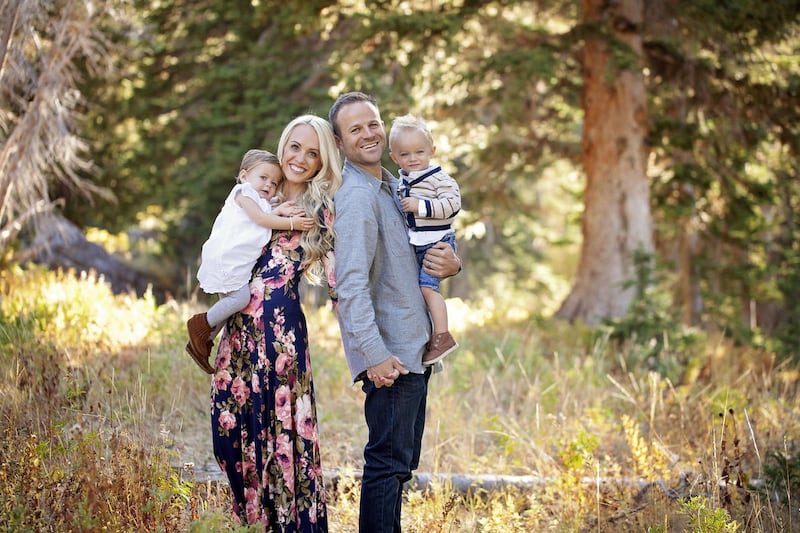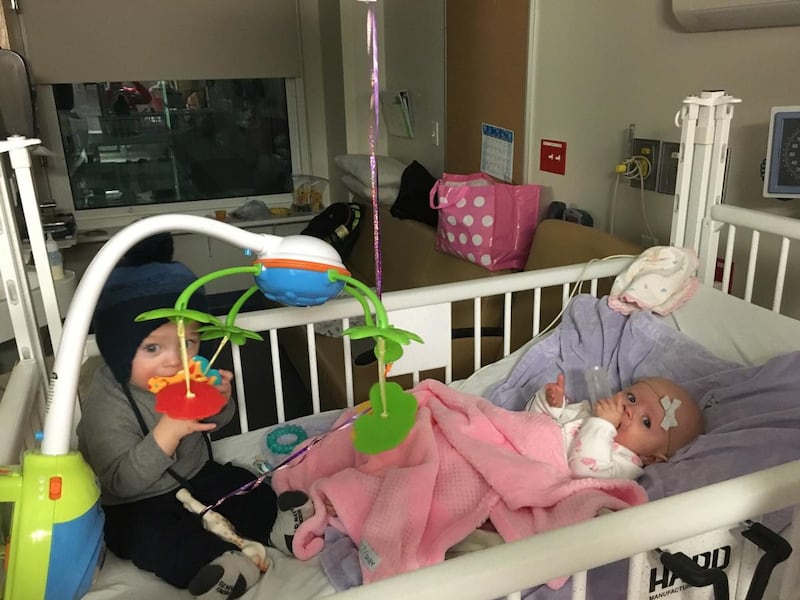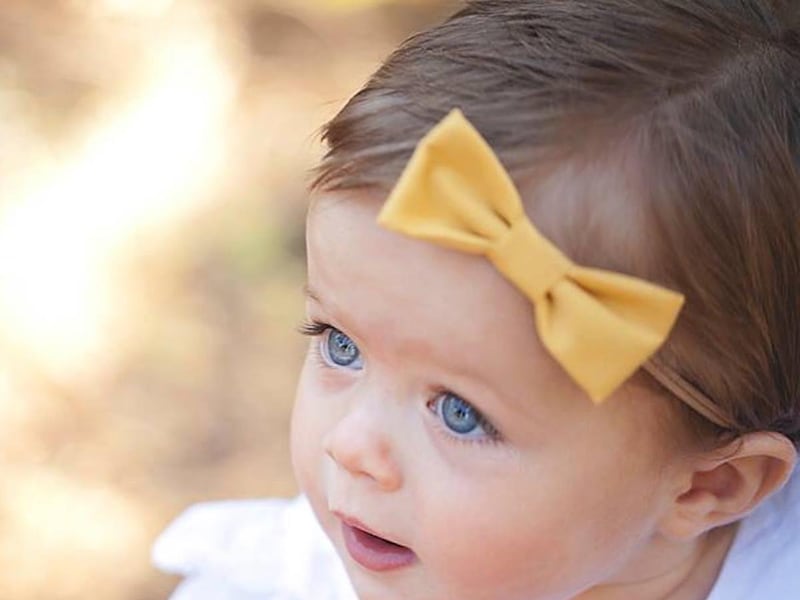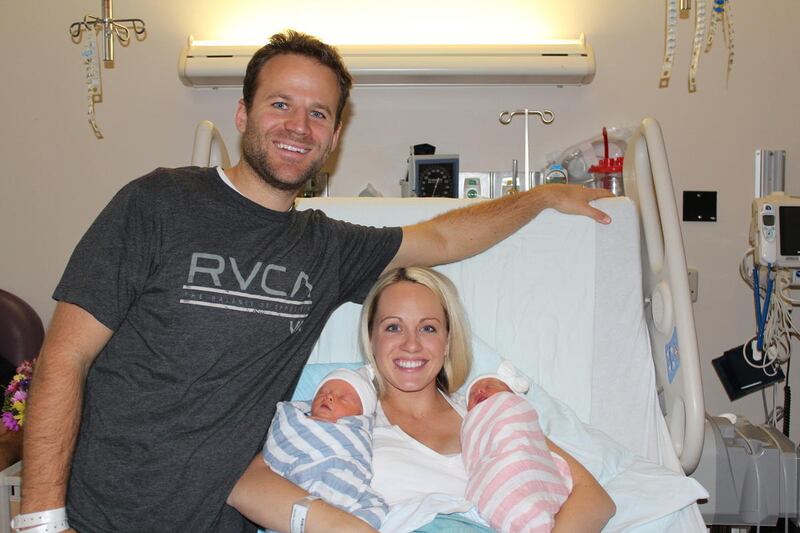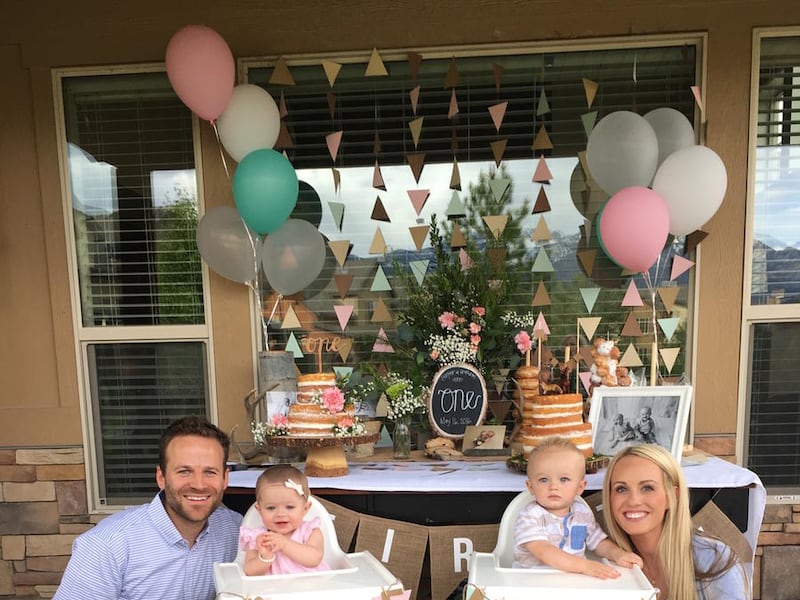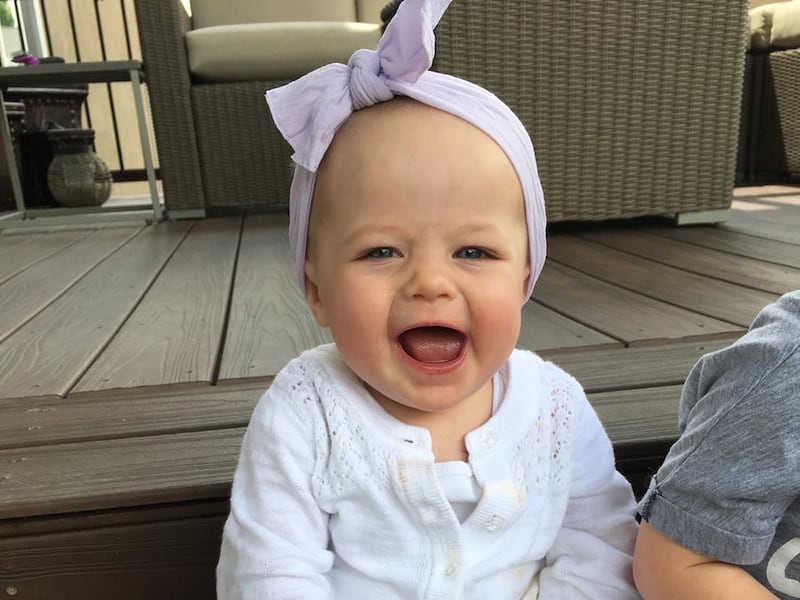As RaShae Tillotson watches her two children play, she recognizes once again, 'This is a sunset moment,' an overwhelming feeling of love for her family. Nothing special has to take place for her to stop and be grateful for the family she has.
Just six years ago, that family was only a dream — a dream that seemed to continually be crushed. After experiencing the loss of multiple babies, Tillotson didn't know if she could continue trying to start a family, but she found hope.
"I just had this crazy drive in me that I knew I was going to be a mom," Tillotson said. "There was nothing that was going to stop me."
But after her dream of a family came true, Tillotson was told her baby girl had cancer. Chemotherapy for her 3-month-old was not in the plan, but it also enhanced Tillotson's ability to be grateful for her family each day.
Tillotson and her husband Matt were married in August 2009. One year later Tillotson learned she was pregnant, but had a miscarriage at 13 weeks. It was a molar pregnancy, so she had surgery and was told they needed to wait one year before trying to have children again.
"Once you want a baby or have anticipated a baby you’re kind of in that mindset and you’re just so excited to have a baby and then someone takes that away from you," Tillotson said. "I had a really really hard time … I sought professional help during that time because I experienced a lot of depression and anxiety. It was very serious."
One year and six months after Tillotson's miscarriage, she became pregnant again but experienced an ectopic pregnancy. Tillotson had emergency surgery, and following the surgery learned that she had endometriosis.
Several months later, Tillotson became pregnant, but miscarried again at 10 weeks, her third miscarriage.
It was 2013, and her doctor recommended seeing a geneticist. Tests came back regular, and upon seeing a doctor at the maternal fetal medicine clinic at the University of Utah, Tillotson's fertility specialist suggested to try again.
"We tried again and I miscarried again and they were like, 'OK, something’s wrong,' because I was miscarrying fairly late into the pregnancy, like 10 weeks, 13 weeks, 11 weeks."
Doctors determined that the embryos needed to be tested, so Tillotson began the in-vitro process. Test results found that the embryos were healthy, leaving no answers for all of the miscarriages. Doctors suggested they continue to try.
"We implanted one and it didn’t take, which was super heart-wrenching after going through all of that," Tillotson said. "I consider that my fifth miscarriage, in a way."
Following this attempt, Tillotson had exhausted so much energy into the process, she wasn't sure she wanted to continue.
"After the fifth time of losing a baby, or going through a loss like that, I just thought emotionally I could not do this one more time," Tillotson said. "But one day I was just like, 'I know I’m going to be a mom, and if I have to exhaust every single situation to figure out how I was going to be a mom' — and I didn’t know, maybe it would be adoption, maybe it would be 10 years down the road — but I couldn’t stop. As much as I wanted to give up, I knew, 'I can’t give up' because then that is what is actually the saddest. If you’re throwing in the towel, then at the end of the day you still don’t have a baby, and that was even more sad for me."
In the fall of 2014, Tillotson had two embryos implanted and they both took successfully.
"We were trying to be as positive as we could, but after having five losses it was really hard not to be nervous about having another miscarriage," Tillotson said. "For me, it was the 20-week mark when I could see that they were healthy … I think at that point I was able to accept, 'Oh my gosh I really am pregnant, I can get excited now.'"
At 27 weeks, Tillotson began having contractions and went into preterm labor at 32 weeks. Doctors were able to halt the process, however, and at 36 weeks on May 16, 2015, Harper and Graham Tillotson were born. Graham was 6 pounds 13 ounces, and Harper was 4 pounds 4 ounces.
"It makes me cry even thinking about it," Tillotson said. "I remember the first time I held both of them and I just cried and cried tears of joy because it was a dream come true. It didn’t even feel real. To hold two perfect babies in my arms, I will never forget it."
Although two newborns are quite the undertaking, Tillotson never saw her situation negatively.
"Having twins everyone would say, 'Oh my gosh, I don’t know how you’re going to do it, that must be so hard,'" Tillotson said. "And it was like, ‘No, this is my dream. I’ve been waiting for this my whole life. Nothing about this seems hard because this is what I wanted for so long.’”
Three months after the twins were born, Tillotson noticed a gray coloring in Harper's skin. Their family was planning a trip to Las Vegas, so she visited the pediatrician before they left. She was told it was a simple stomach flu, and that it should go away in a few days. Tillotson and her husband left for Las Vegas, but while they were there Harper began throwing up consistently.
The Tillotsons took Harper to the emergency room of a children's hospital in Las Vegas. An ultrasound found swelling in her abdomen, and following the CT scan a doctor told the couple that their daughter had a tumor in her liver.
They immediately traveled back to Utah, and Harper was admitted at Primary Children's Hospital. Shortly after that, a biopsy confirmed that Harper had hepatoblastoma, and four days later, weighing only 7 pounds 9 ounces, she had a port placed in her chest to begin chemotherapy.
"I think finding out your child has cancer is, potentially, one of the worst things to hear and a nightmare," Tillotson said. "I initially was really, really mad. My feelings in the beginning were just anger, so angry that why would this happen to me and my family? But my feelings of anger weren’t doing me or my family any good, so I had to, for my family's sake and for my sake and survival sake, I had to be the parent and I had to be strong. You have to be strong for your kids in those situations and I had two beautiful babies that I had to be strong for, so I chose to be positive."
Harper completed four rounds of chemotherapy, then on Jan. 6 at eight months old, Harper had surgery that removed 100 percent of the tumor and half of her liver in the process. Following the surgery, Harper completed two more rounds of chemotherapy. During those times, Tillotson would spend nights at the hospital while her husband took care of Graham at home.
"There were times that I would think, 'OK, I’m going to make it through this hour, I’m not going to think about the next hour until I’m in it, I’m just going to take it day by day,'" Tillotson said. "And as hard as it was, there was still a lot of good. It was horrible to see my sick baby, there’s nothing worse than to see a sick child, but it was also pretty amazing to see all the good things and all the miracles along the way."
On March 12, Harper rang the bell that indicated no more chemotherapy, and finished treatment in April. She is now monitored closely with blood tests every four weeks.
"There are no certainties in life," Tillotson said. "You have to live each day to the fullest and really enjoy those hard days and recognize how grateful you are to have those hard days with your kids because there are people out there that want to have hard days with their children, they want to experience difficulties with children but never get the chance to have them. For me, I just feel that each day is a gift."

